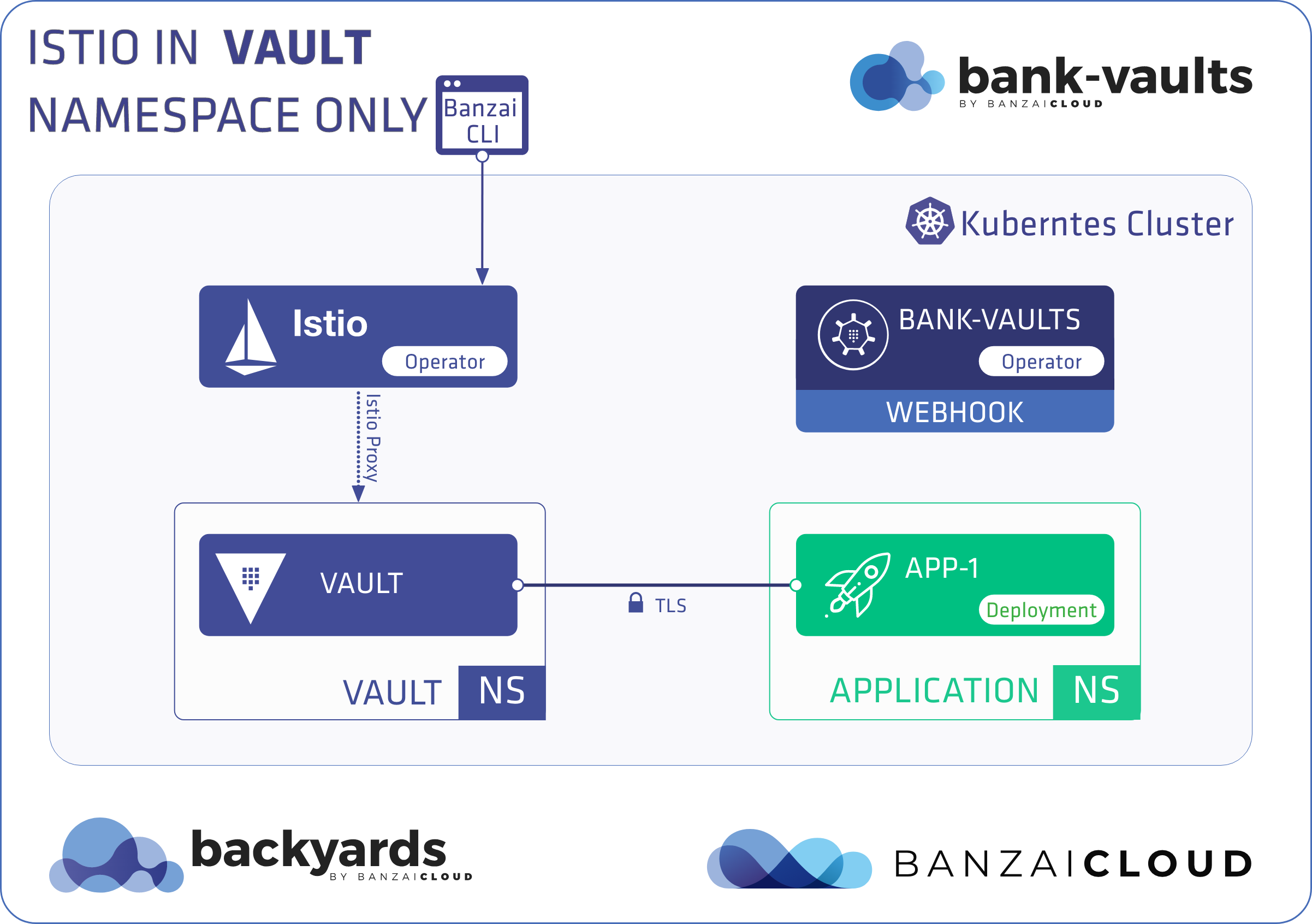To run Vault inside the mesh, complete the following steps.

Note: These instructions assume that you have Scenario 1 up and running, and modifying it to run Vault inside the mesh.
-
Turn off Istio in the
appnamespace by removing theistio-injectionlabel:-
With
kubectl:kubectl label namespace app istio-injection- kubectl label namespace vault istio-injection=enabled -
With
backyards:backyards sidecar-proxy auto-inject off app backyards sidecar-proxy auto-inject on vault
-
-
Delete the Vault pods in the
vaultnamespace, so they will get recreated with theistio-proxysidecar:kubectl delete pods --all -n vault -
Check that they both come back with an extra container (4/4 and 2/2 now):
$ kubectl get pods -n vault NAME READY STATUS RESTARTS AGE vault-0 4/4 Running 0 1m vault-configurer-6d9b98c856-l4flc 2/2 Running 0 1m -
Delete the application pods in the
appnamespace, so they will get recreated without theistio-proxysidecar:kubectl delete pods --all -n app
The app pod got recreated with only the app container (1/1) and Vault access still works:
$ kubectl get pods -n app
NAME READY STATUS RESTARTS AGE
app-5df5686c4-4n6r7 1/1 Running 0 71s
$ kubectl logs -f -n app deployment/app
time="2020-02-18T14:41:20Z" level=info msg="Received new Vault token"
time="2020-02-18T14:41:20Z" level=info msg="Initial Vault token arrived"
s3cr3t
going to sleep...











